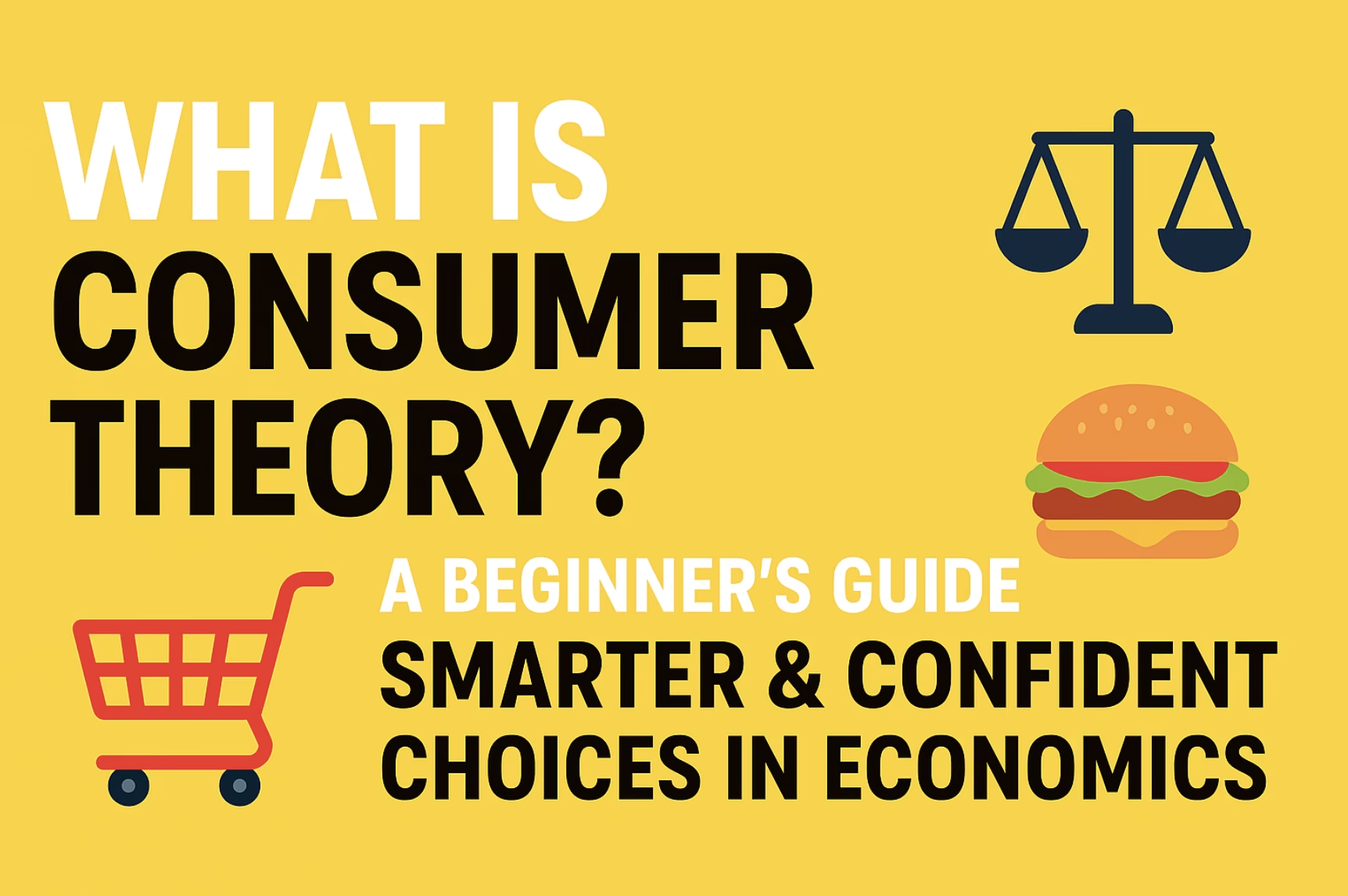Consumer theory is a core concept of microeconomics. In this theory, we understand how people spend their money with limited resources. Learn its meaning, assumptions, real life examples and why it matters for businesses and countries….

Introduction
When you go for shopping you buy groceries, clothes and you make your choices about what to purchase or save it for later. This decision you think is personal but economists have a powerful way to explain it, it is called consumer theory. The study of how people spend their money to get satisfaction.
What is Consumer Theory ?
Consumer theory is a branch of microeconomics. This is the study of how people spend their money with limited amount of money and the prices of those goods.
At its heart consumer theory tries to give us three simple questions’ answers:
- What do people buy and why?
- How much do they buy?
- How do choices change because of increase/decrease in income level or prices of goods?
Core Assumption of Consumer Theory
Economists explain consumer behaviour by using three main assumptions.
Utility maximisation
People are rational, they try to get most satisfaction from their money.
Non satiation
More is usually better. If both items are giving you the same satisfaction then people prefer to buy the one with more quantity.
Diminishing marginal utility
Each extra unit of consumption gives less satisfaction than the one before it.
Example: If you are so hungry and you go to some pav bhaji restaurant and you order pav bhaji and you take the first bite, it will be the most satisfactory bite. After that the satisfaction decreases and your stomach is full. Now you still like pav bhaji but you won’t have it anymore because you are satisfied.
Budget Constraints
No one can buy everything. A budget shows what you can buy with your income.
Example: Your income is 500, and a biryani costs 250 and a burger costs 100.
Then you can have 5 burgers or 2 biryanis or 1 biryani + 1 burger. Your choice depends on which option is giving you the most satisfaction.
Why Consumer Theory Matters
Consumer theory is not just an academic theory, it helps business, governments and individuals to shape their decisions.
Businesses
Companies use consumer theory to understand consumer behaviour — how people are spending, on what products, and how demand changes when the price of a product changes.
For example, if a coffee shop raises its prices slightly and sees a big drop in customers, it learns that coffee is highly price-sensitive for its buyers.
Governments
Consumer theory gives governments feedback about how consumers are thinking about government policies.
- If taxes increase on fuel, people prefer to go by public transportation.
- If subsidies are offered on solar panels by governments, people install more solar panels on their roofs.
For Individuals
Even at the personal level consumer theory matters. It can help you to take appropriate decisions in life such as:
- Why you choose cheaper alternatives.
- Understanding how advertising influences your decision.
- Making smarter financial choices by prioritizing needs over wants.
In short, it explains the psychology behind why we buy what we buy.
Final Thoughts
Consumer theory is one of the most important economic theories. It helps us understand how people are spending money. It also helps governments, businesses and individuals. For example, if you want to start any business and you know how people are spending their money, then you can create a business in that niche.